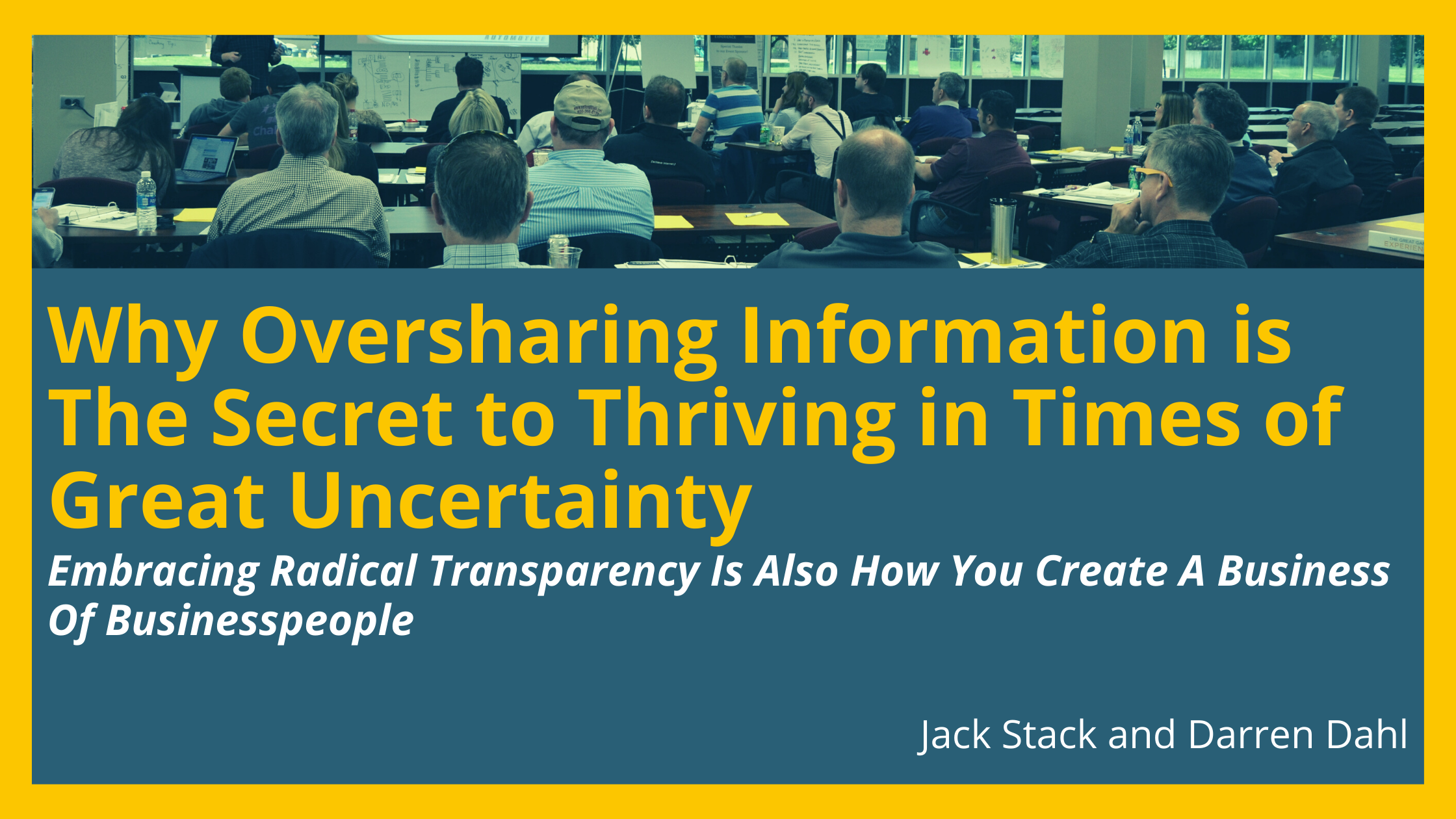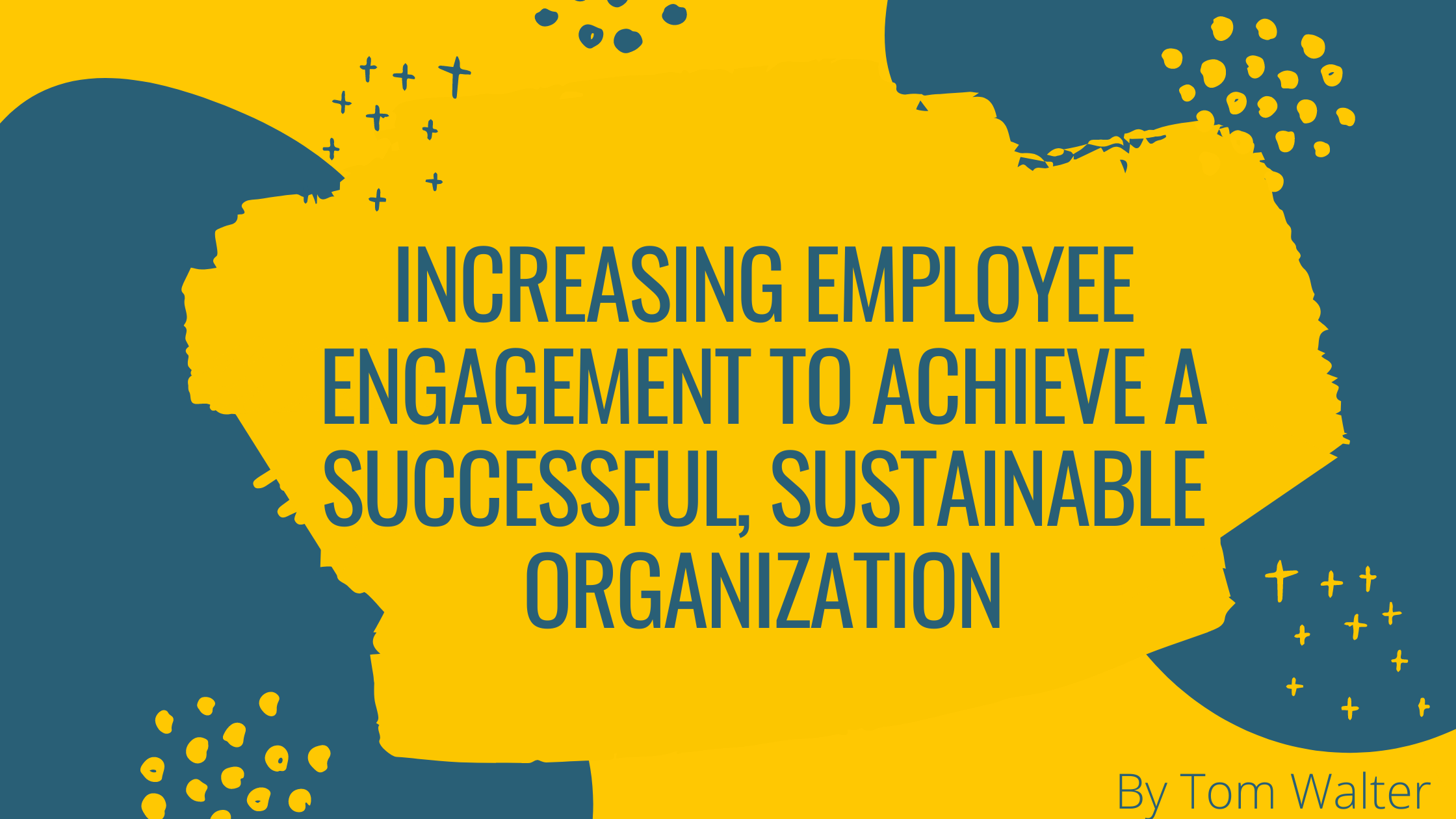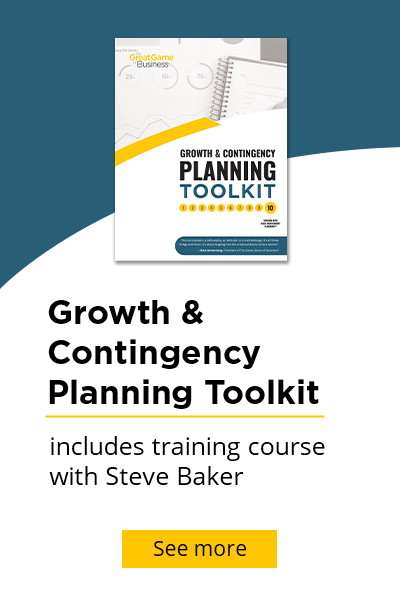Things were looking up there for a while, weren’t they? At least the long-term forecasts still look strong. But this omicron variant is causing us to tear our hair out, worrying about the health and safety of our people (let alone our loved ones at home). Just this past week, we saw 82 of our associates call in sick—that’s 5% of our company. Just as bad, something like 8% of our company has tested positive for the virus in January. Then, we got hit with the news that our school system was shutting down for a week or more because of the incredible wave of infections ripping through our community. That means we have parents forced to stay home or find childcare options at the last minute, which just puts enormous stress on everyone.
Read More
Are you a leader? Before you answer that question, consider … there’s a big difference between management and workplace leadership. Try this quote on for size: “Management is efficiency in climbing the ladder of success; leadership determines whether the ladder is leaning against the right wall.” – Stephen Covey
Read More
A company owner asks employees what he can do to make their work easier. The employees come up with the idea of providing mobile hotspots for employees who spend a lot of their time traveling. The owner, who is grateful to the team and what they do for the company, does the research and gets a cost for the hotspots and mentions it during their weekly huddle. The employees speak up and decline the hotspots saying it cost the company too much money and wasn’t worth the investment, but they thank the owner for being willing to support them.
Read More
Markets shift, economies surge and ebb, and leadership changes. But basic human needs haven't changed. These are what motivate and drive employees to perform at their highest level, impacting everything from self-reported job satisfaction to workforce productivity. What are these motivators? Why do they matter? What effect does motivation have on the short and long-term success of an organization? The following are some thought-provoking ideas to increase employee engagement.
Read More
The New Year is off and running. If your business is anything like ours, you’ve got your hands full. The good news is that we’ve begun to see some progress in overcoming the shortages in parts and people we’ve been struggling with ever since the pandemic hit us in March 2020. Getting our supply chain straightened out while also finding ways to recruit new people (and retain our existing associates) has helped us get back on track with our annual plan. In fact, our team has been remarkably consistent in the accuracy of our forecasts. (We’ll see how accurate when we close out our fiscal year at the end of January.) We’re also leaving far less potential business on the table due to the easing of those constraints, which bodes well for our growth heading into 2022. When I talk to other business owners and executives, I hear similar good news. It’s pretty common to hear that 2021 was a record year for many of them. That’s led to a lot of optimism as people looked to 2022.
Read More
Many companies beginning their GGOB journey ask, How often should your team Huddle? What does a Huddle look like? Those just starting out with the Great Game process often fear that these Huddles will be “too time consuming” or “just another meeting.” The truth is that Huddles, when done well, will actually save you time because they improve communication and the execution of tasks. Here, we've broken down each type of Huddle:
Read More
2021 seemed to fly by, at least here at The Great Game of Business. We were planning our year just yesterday, and then, BAM, the year was over. At least, that is how it felt. Looking back on 2021 made us take stock of the most read Great GameTM blogs. In case you missed them, here they are in order: #8 - 10 Easy Ways Leaders Can Express Appreciation in the Workplace Individuals in the workplace need to feel appreciated in order to enjoy their job, do their best work, have positive work relationships, and stay with their organization long-term. The key ingredient in meaningful, significant, and effective appreciation is individualization—expressing appreciation in the recipient’s preferred “language.” Varying the ways company leadership communicates appreciation will improve chances of hitting the mark, so we’ve compiled 10 ways leaders can express appreciation in the workplace and foster positive work relationships in order to establish a recognition culture. <>
Read More
By definition, a MiniGame™ is a short-term activity designed to correct a weakness or pursue an opportunity in your company. MiniGames motivate employees to make day-to-day improvements that will add up to year-long success, and when implemented correctly, MiniGames are proven to: Affect a financial or operational change: Drive results through improved performance. Increase business literacy: Reinforce key components of business success such as goal setting, mutual responsibility and performance management. Build teamwork: Rally employees (players) around a common goal in order to achieve a shared reward. Develop a winning attitude: Create an environment where winners are recognized and rewarded for generating results.
Read More
For nearly four decades, SRC Holdings have been evangelizing the importance of tapping into the universal human need to win. The Great Game of Business® educates your people in the rules of business, rallies them around a common goal, empowers them to see and improve the score, and engages them by allowing them to share in the rewards— What we call a Stake in the Outcome®—presenting them with the opportunity to win as a team. If you want to see success the way SRC has for almost four decades, you must start with communication. You need a system to ensure that you get the most out of your meetings. That doesn’t mean you need one identical to SRC’s meetings, or Huddles as we call them. On the contrary, your system will inevitably look, sound, and feel very different, as well it should. Companies are as diverse as people, and nothing is more distinctive than how you communicate. You have to develop a language and style with which you and your people feel comfortable, which fits your business personality. You will also have to adapt other companies’ techniques to your circumstances, and you may well have to invent new methods of your own.
Read More
“Engagement” has become such a huge buzzword in our society that some CEOs and managers no longer even want to talk about it! But don’t be fooled—this topic isn’t going anywhere. With research organization Gallup reporting that a staggering 87% of employees worldwide are not engaged in the workplace… we have our work cut out for us.
Read More

.png)















.png)




-5.png)

